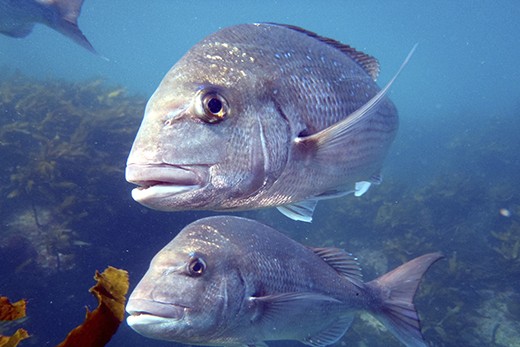A new project to breed ‘super’ snapper that are more resistant to disease, grow faster, and can thrive in warmer water could help drive more economic growth through aquaculture, says oceans and fisheries minister Shane Jones.
“The potential here goes far beyond growing a better and more resilient breed of fish, it also supports our efforts to grow and future-proof New Zealand’s aquaculture.
“Climate change is affecting the condition of our oceans and this project is a practical response by a key industry to that change,” says Shane.
“In the wild, snapper can take many years to grow to catch size.
“The ability to grow them faster, getting them from farm to plate in a shorter time, could open up a new export market and reduce pressure on wild snapper stock.”
An exemption has been granted to Plant and Food Research, a crown research institute, that allows it to take the research to the next stage.
Under the Fisheries Act, fish caught for research purposes are not able to be used in aquaculture.
This exemption means PFR can move its brood snapper stock to a pilot-scale aquaculture farm being developed in Marlborough.
“Research that is focused on expanding and improving farmed fish species is very welcome and should be encouraged and supported,” says Shane.
“Growing aquaculture is a win for all New Zealanders.
“It provides jobs and economic growth for the regions and increases export potential for the country.
“This Coalition Government wants to see aquaculture grow to a multibillion-dollar industry.
“I’m pleased by the innovation and progress I’ve seen in aquaculture in recent months.
“This project, and the recent final approval for New Zealand King Salmon’s Blue Endeavour project, shows the aquaculture industry is up to the challenge of climate change, and keen to grow an aquaculture sector for the future.”



1 comment
Oh...Puh-leeze
Posted on 02-04-2024 18:43 | By morepork
"The ability to grow them faster, getting them from farm to plate in a shorter time, could open up a new export market and reduce pressure on wild snapper stock.” Yeah, right. We won't eat them ourselves, (we'll keep the "wild stock" for that...), but we can unload them on the export market (until they wise up and our reputation is destroyed internationally.) I am NOT a "Greenie" but I firmly believe that genetically modifying ANY food source is a recipe for disaster. In the last 70 years, the wheat plant has been modified more than 10,000 times (mostly secretly,by "Big Food"), genetically and by cross breeding. The bread we eat now, is poisonous and the grains we eat (I don't...) are nothing like the grains our forefathers ate. Just because we have the wherewithal and knowledge to modify foodstocks does NOT mean that we SHOULD do so.
Leave a Comment
You must be logged in to make a comment.